Social educational activity
19/03/2018
World Tuberculosis Day on March 19
Department of Epidemiology and Hygiene of the Faculty of Medicine in the framework of the World Tuberculosis Day on March 19, the students conducted sanitary and educational work among the population of Almaty. Students interviewed city residents and distributed information leaflets "Stop Tuberculosis!"
The main questions that were reflected in the questionnaires:
- Ø Do you know how to get tuberculosis?
- Ø How do you know the symptoms characteristic of tuberculosis?
- Ø What measures of protection against tuberculosis do you know?
- Ø What will you do if you suspect tuberculosis?
- Ø What is your attitude to the patient with tuberculosis?
80 residents of Almaty participated in the survey.
The students of the 2-3 courses of the public health specialty not only conducted surveys among the population, but also answered questions from the public and explained brief information about the information booklets. 80 residents of Almaty took part in the survey. As a result, we all know that tuberculosis is an infectious disease, not everyone knows how to deal with the infection and the first signs of infection. All of them showed that they immediately resorted to a hospital, the doctor's help when they are suspected of tuberculosis.
Responsible: Candidate of Medical Sciences, Acting Associate Daniyarova AB
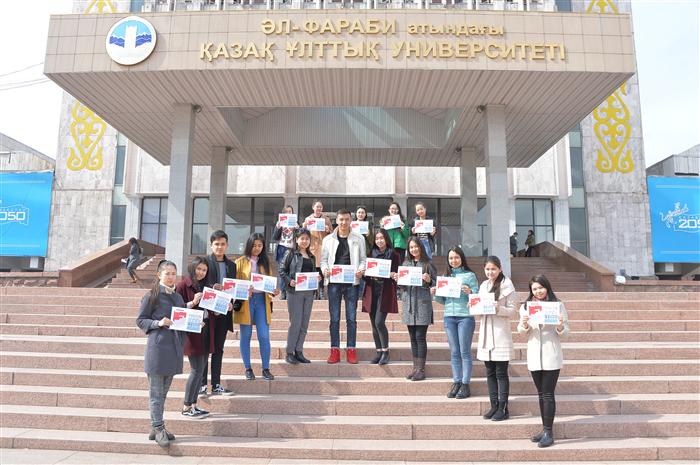 |
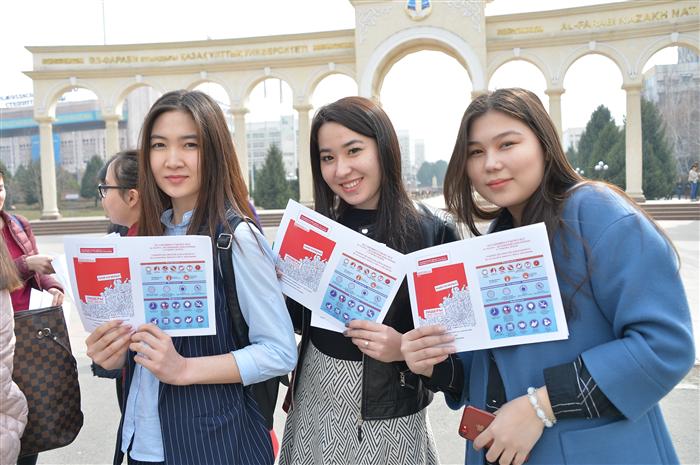 |
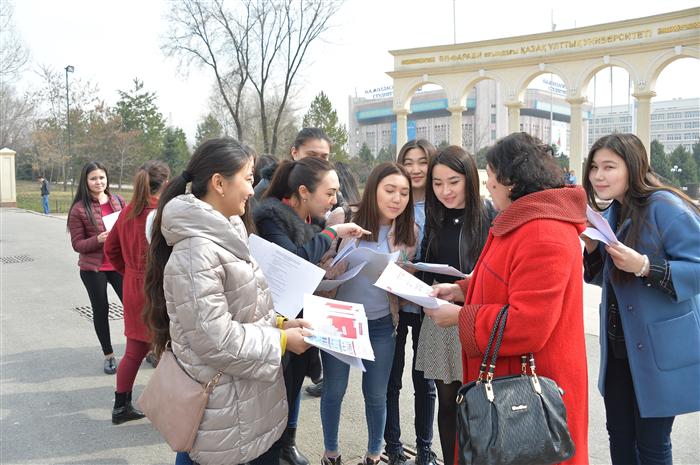 |
03/01/2018
March 1 - World Immunity Day
Annually, since 2002, on the initiative of the World Health Organization, the World Day of Immunity is celebrated on March 1, the goal is to attract public attention to the problems associated with the spread of various immune diseases, as well as the preservation and strengthening of immunity in general.
The ancient Romans and Greeks believed that a person with good immunity is "free" from illness. After all, even during the terrible epidemics of plague and smallpox, not all fell ill. The immune system, like everything in man, is complex and multifaceted. The strength of immunity, like our overall health, is about 50% dependent on the lifestyle we choose. Among the main destroyers of immunity specialists call frequent stresses, improper diet, constant lack of sleep, long exposure to the sun, too much physical activity and, conversely, a sedentary lifestyle. And, of course, bad habits - smoking, alcohol, drugs.
Immunity depends on the work of the intestine: 80% of the "cells" of the immune system is located in it. And that means everything that we eat or weakens, or strengthens our invisible defenders. Vegetables and fruits - vegetable food - should constitute 50% of the diet.
Sour-milk products containing bifido- and lactobacilli fight with harmful microorganisms for a place in our intestines and create the main protective barrier against pathogens.
Only 10% of people can boast of powerful immunity, which protects them from almost all diseases. Another 10% have congenital immunodeficiency: they get sick very often. The remaining 80%, the strength of the immune system depends on the conditions and lifestyle.
The rules are simple:
- · Fresh air - every day;
- · Balanced diet;
- · To bad habits - no !
- · Moderate physical exercises to tighten the muscles, help to "lose" excess weight, will make sleep more strong;
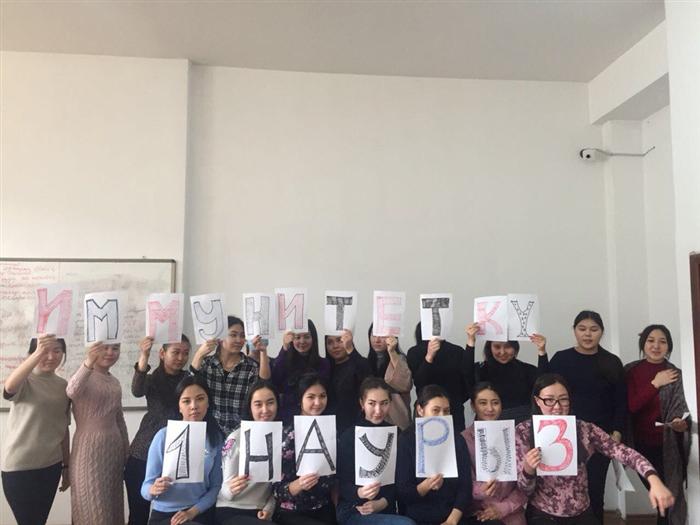 |
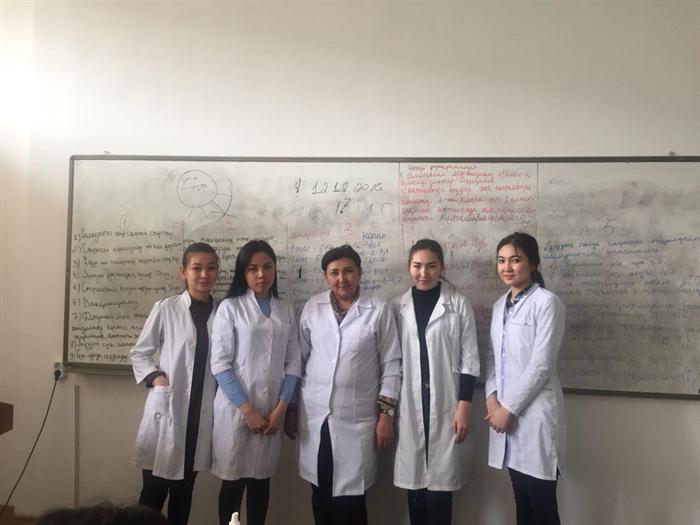 |
03/03/2018
Within the framework of the "Healthy Lifestyles" activities, 1st year students of the Medical Faculty of the All-Russia High School of KazNU. al-Farabi on weekends took part in the mass skating on the high-mountain skating rink Medeo. We hope that the received charge of vivacity will help our students to achieve success in their studies and successful delivery of the boundary control !!!!
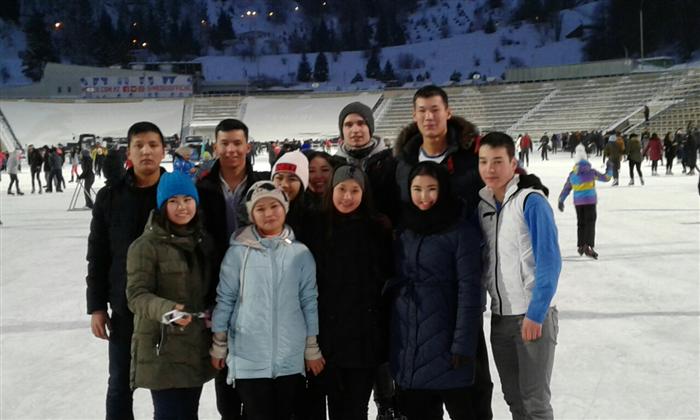 |
 |
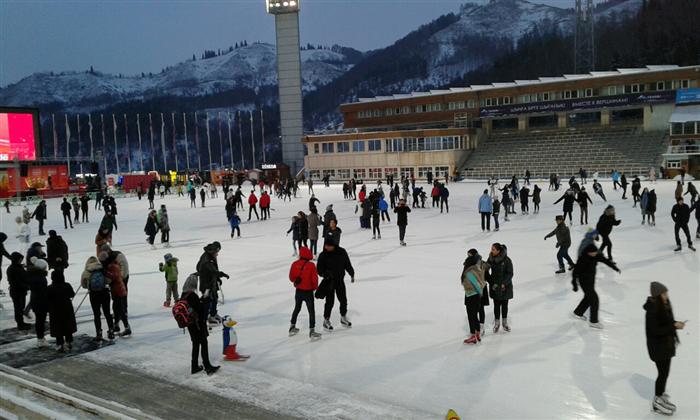 |
03/05/2018
"Kazakhstan entered a new historical period. Our goal is known - to enter the top thirty of the developed countries of the world. "President of our country, NA Nazarbayev, decided to share his vision of how we together to make a step towards the future, change public consciousness to become a single Nation of strong and responsible people.
Curator adviser 2 k. MTD, senior lecturer of the department of epidemiology Adilova MT. with second-year students of the specialty medico-prophylactic case, held a curatorial hour on the topic "Bolashak ba-dar: ruhni zhanyrou". The main purpose of the curatorial hour is to inform students about the program "Bolashak Badar: Ruhani Jahiru", the development of patriotic, intellectual and creative abilities of young people and the expansion of the use of the state language, the formation and development of youth activism and patriotism, the involvement of social problems, the strengthening of friendly relations between the students of the region. Based on the results of the curatorial hour, it can be stated that all the students reasoned their thoughts through discussion of the Rukhani zharyro program points, discussed all the key directions of Kazakhstan's development, analyzed the world trends in the field of politics and foreign economic relations, made an excursus into the history of the country, his speech with his own view on the development of modern society.
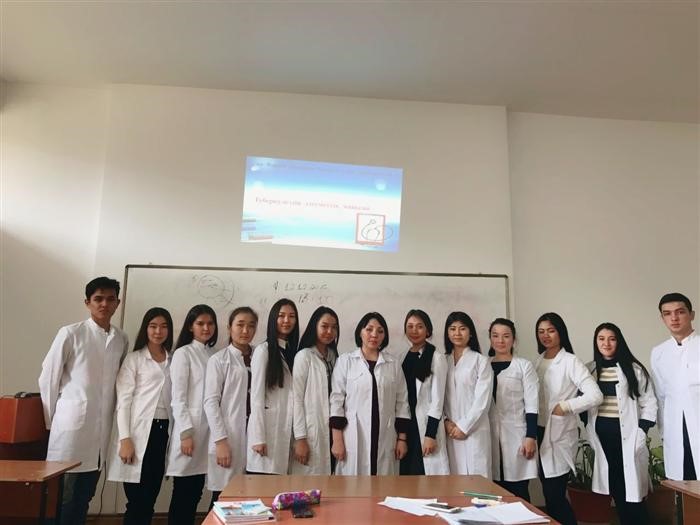 |
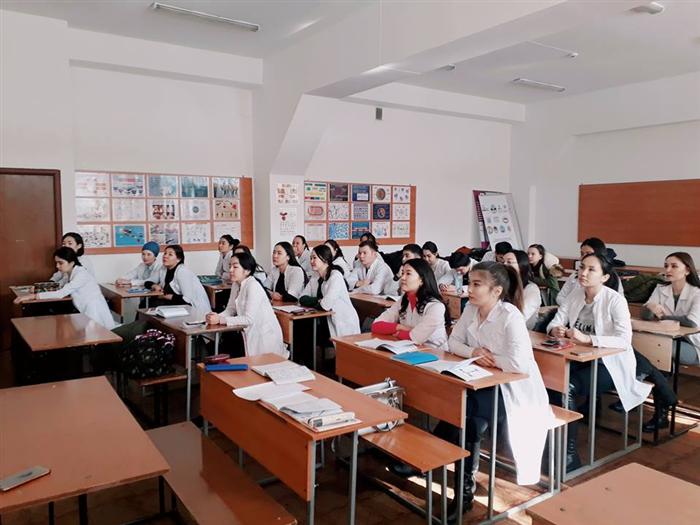 |
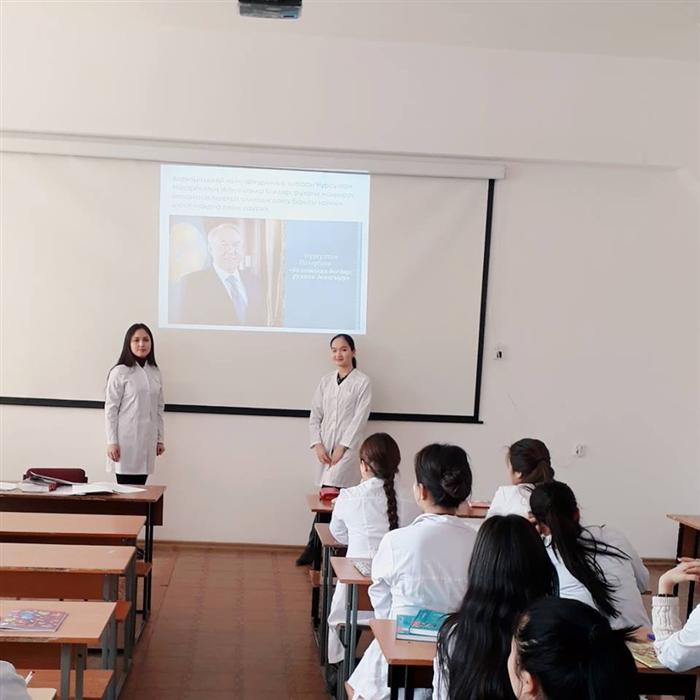 |
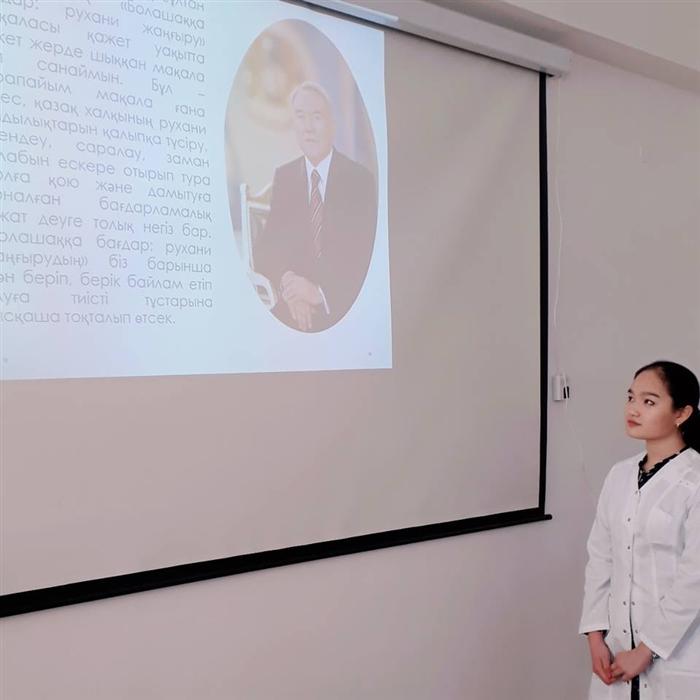 |
13 .02.2018
13 .02.2018 with the curator group of the Ministry of the Interior 2 courses attended the Theater of Young Spectators named Gabit Musrepov who watched the play "Goats Korpesh - Bayan Sulu". The performance was held at a high level. Today, in competitive conditions for education, spiritual food is the foundation of our youth.
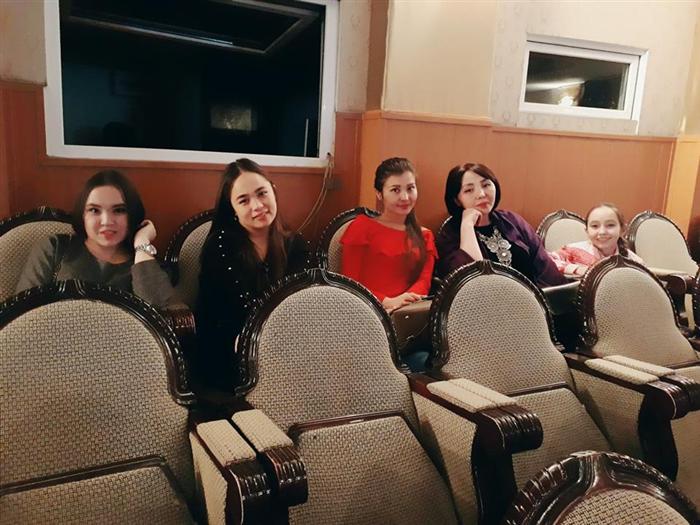 |
 |
11/06/2017
REPORT OF CURATOR ADVISER ADILOVA M. T. ABOUT THE CURATOR'S HOUR ON THE THEME:
"TUBERCULOSIS - AS A SOCIAL PROBLEM"
11/06/2017 in the training group of students of the first year of specialty OZ and the adviser, st.prep. Department of Epidemiology and Hygiene Adilova M.T. a curatorial hour was held on the theme "Tuberculosis as a social problem". The group discussed information on the incidence of tuberculosis patients, sources of infection, transmission routes and preventive measures to combat tuberculosis. Students noted the high urgency of the problem and the importance of preventive work to reduce the number of diseases
 |
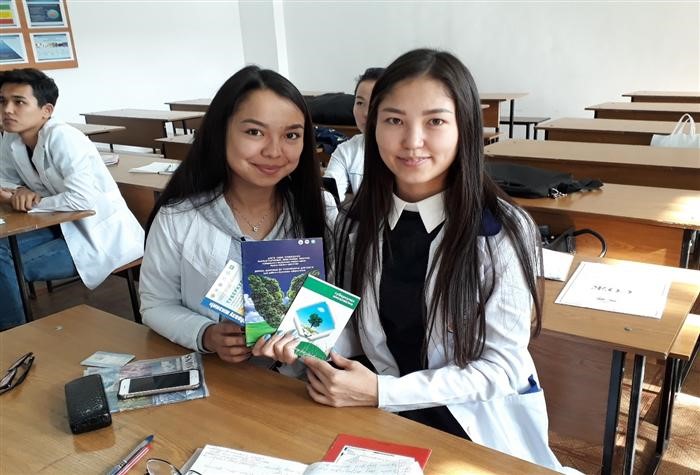 |
11/13/2017
HIV-as a social problem
HIV infection is a disease that specialists recognize as the first global epidemic in the known history of mankind. The development of the HIV / AIDS pandemic has caused an unprecedented response from the world community, both in the field of biomedical research and in other areas: public health, social, economic, cultural, political and human rights. In connection with this, 13.11.2017 the senior teacher of the department of hygiene and epidemiology Adilova MT. with the 1st year students of public health specialty conducted an open lesson on the topic "HIV-as a social problem" on the subject of Social hygiene. In the classroom we used an interactive method of teaching in the form of multimedia presentations, brainstorming in the form of an innovative survey using a graph projector, at the end of the session, to consolidate the material, the gaming method in the form of a crossword puzzle.
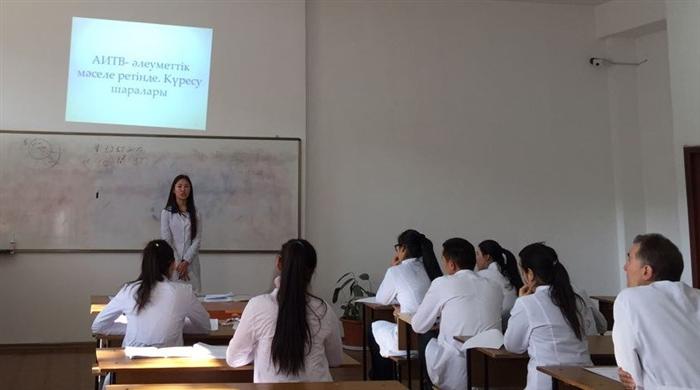 |
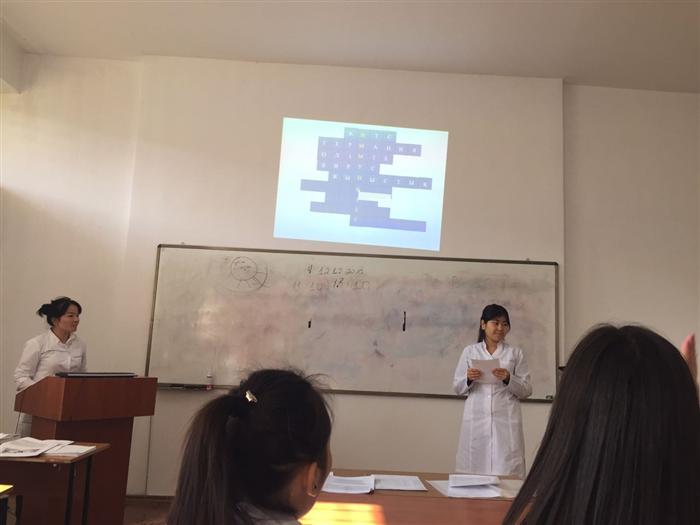 |
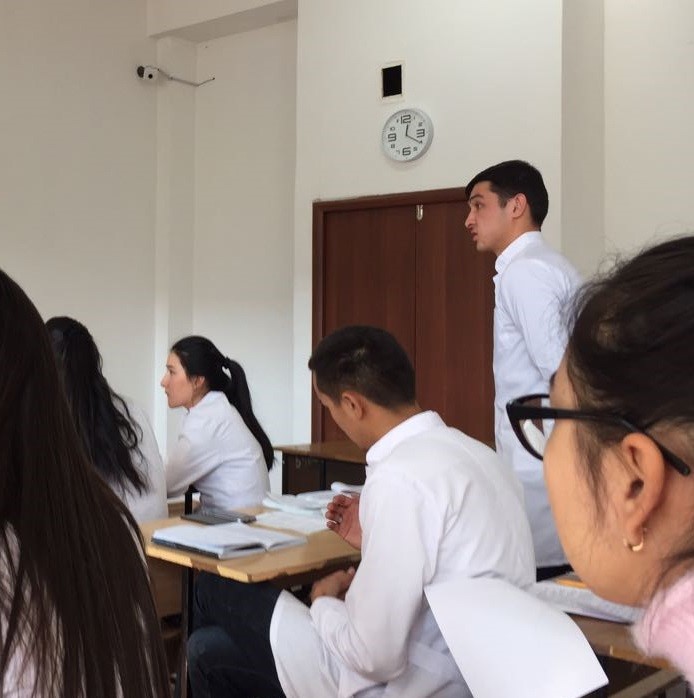 |
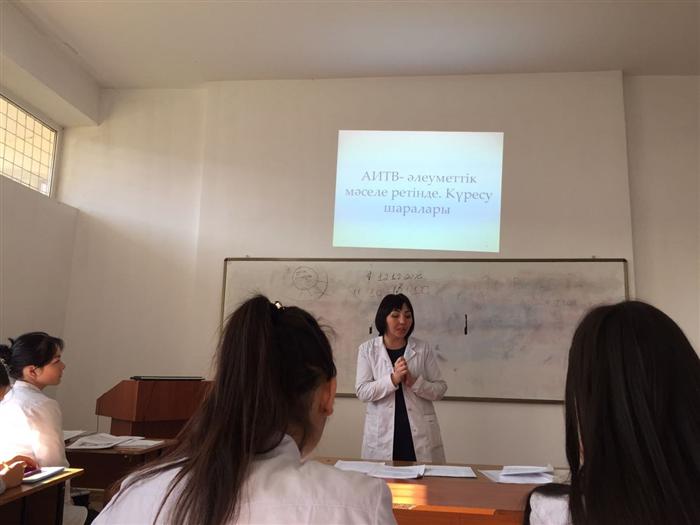 |








